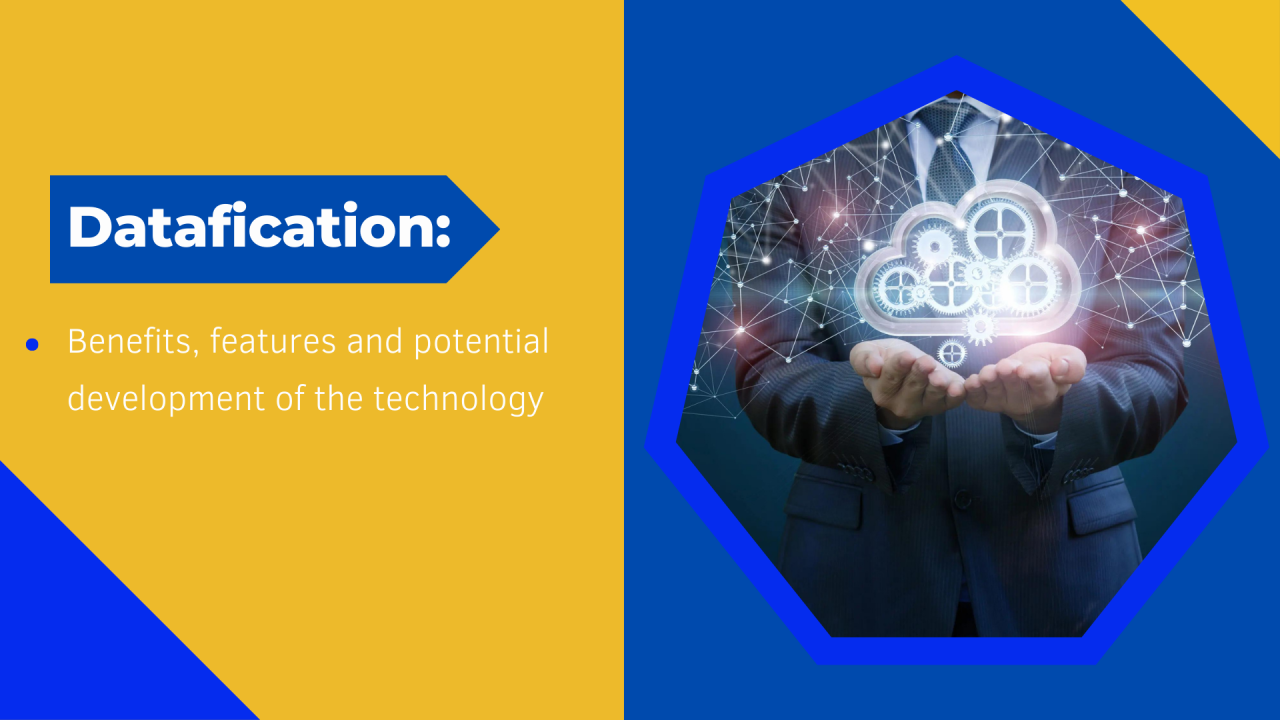Introduction: Data has become a driving factor behind various technological developments in today’s digital age, including those in the software development business. Datafication, or the conversion of numerous parts of our lives into data, is playing an important role in influencing the software development landscape. This essay investigates datafication’s tremendous impact on the software development industry and forecasts its future ramifications.
Datafication in Software Development
Datafication refers to the process of collecting, processing, and utilizing data to improve decision-making and create value. In the software development industry, datafication is revolutionizing the way developers create, deploy, and maintain software.
Here are some key aspects of how datafication is currently impacting the industry:
Enhanced User Experience: Datafication enables developers to gather and analyze user data, providing insights into user behavior and preferences. This information can be leveraged to create more intuitive and personalized software interfaces, ultimately leading to improved user experiences.
Predictive Maintenance: In the realm of software development, datafication helps predict when software components might fail or require maintenance. By analyzing historical data, developers can address issues before they become critical, reducing downtime and enhancing reliability.
Agile Development: Data-driven decision-making allows for agile software development. Developers can continually fine-tune software features and functionalities based on real-time user feedback and performance metrics.
Security Measures: Datafication plays a crucial role in enhancing cybersecurity. By monitoring and analyzing network data, developers can detect anomalies and potential security breaches in real-time, bolstering protection against cyber threats.
Future Projections
The impact of datafication on the software development industry is poised to grow in the coming years. Here are some projections for the future:
Artificial Intelligence Integration: AI will play a more prominent role in software development. Developers will use AI algorithms to sift through vast amounts of data to identify patterns, troubleshoot issues, and even generate code.
Continuous Improvement: Datafication will drive continuous improvement in software development processes. Machine learning algorithms will identify areas for optimization, leading to more efficient and robust software.
Personalization: As datafication becomes more sophisticated, software will become increasingly personalized. User interfaces and features will adapt in real-time based on individual preferences and behaviors.
Data Ethics and Privacy: With the increasing use of data, concerns around ethics and privacy will intensify. The software development industry will need to address these issues by implementing robust data governance and privacy measures.
IoT and Edge Computing: Datafication will be instrumental in handling the massive amounts of data generated by the Internet of Things (IoT) devices and edge computing. Software development will focus on creating solutions that efficiently process and utilize this data.
Conclusion
Datafication is transforming the software development industry by enabling developers to harness the power of data for better decision-making, enhanced user experiences, and increased security. As we look to the future, datafication’s role will continue to expand, with artificial intelligence, personalization, and ethical considerations taking center stage. Software developers must adapt to this evolving landscape, harnessing data to create cutting-edge solutions that meet the demands of an increasingly data-driven world.
What is datafication, and how does it relate to the software development industry?
Answer: Datafication is the process of transforming various aspects of life and business into data that can be collected, processed, and analyzed. In the software development industry, datafication is relevant because it drives the demand for software solutions that can handle large volumes of data, process it efficiently, and provide valuable insights to businesses and users.
How does datafication improve user experiences in software development, and can you provide examples?
Answer: Datafication improves user experiences in software development by enabling personalized recommendations, predictive analytics, and data-driven optimizations. Examples include Netflix’s content recommendations, Amazon’s product suggestions, and Google’s search results refinement.
What are the future implications of datafication in the software development industry, and how will it shape the industry’s landscape?
Answer: Datafication in the software development industry will lead to:
1. Enhanced decision-making: Data-driven insights will improve project planning and resource allocation.
2. AI-powered tools: Machine learning and AI will automate coding, testing, and debugging processes.
3. Continuous improvement: Constant data collection will drive iterative development and software updates.
4. Data privacy concerns: Stricter regulations and security measures will be crucial.
5. Evolving skill sets: Developers will need to adapt to work with data and AI technologies.
How does datafication impact data ethics and privacy concerns in software development, and what measures are being taken to address these issues?
Answer: Datafication in software development increases data ethics and privacy concerns by collecting, analyzing, and storing massive amounts of user data. To address these issues, measures include stricter data protection regulations (e.g., GDPR), privacy-by-design principles, anonymization techniques, and transparency in data handling practices.
In what ways is datafication driving innovation in software development, such as with artificial intelligence and IoT integration?
Answer:
Datafication is driving innovation in software development in several ways:
1. AI Improvement: Datafication provides vast amounts of data for training machine learning models, leading to more advanced AI capabilities.
2. IoT Integration: Data from IoT devices enables real-time decision-making, predictive maintenance, and automation in various industries.
3. Personalization: Data-driven insights enable the customization of software and services to individual user preferences.
4. Enhanced Analytics: Datafication allows for more accurate and insightful data analysis, leading to better decision-making and problem-solving.
5. Efficiency Gains: Software development processes are optimized through data-driven insights, reducing development time and costs.


